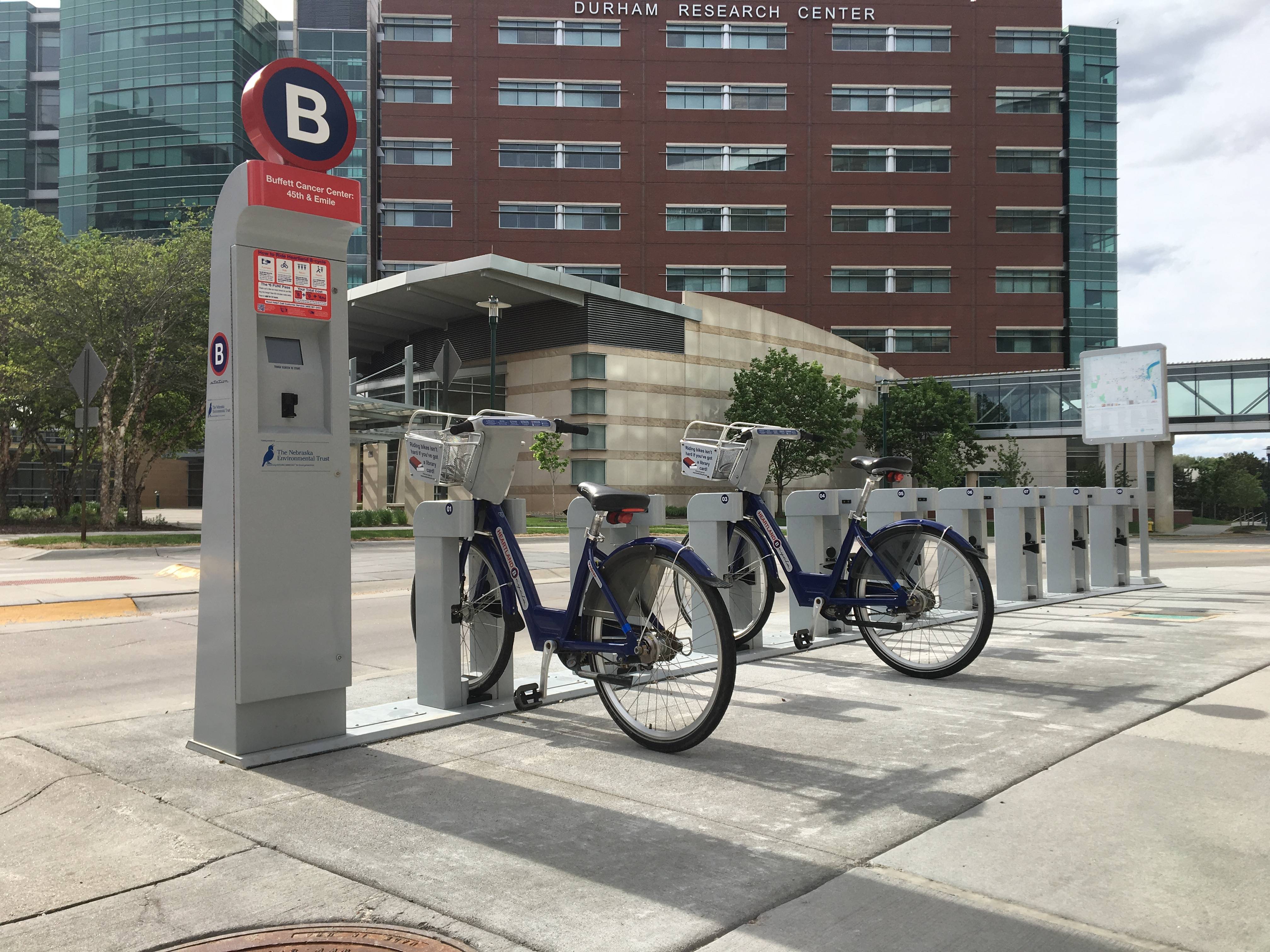Transportation
GOAL: 35% of employee commutes are walk, bike, transit, carpool, or work from home.
Goal update
Baseline: 12.7%
November 2024: 38%
2030 Goal: 35%
The med center’s approximately 20,000 faculty, students, and staff commute to work using a variety of methods. Mode split is defined as the percentage of trips people make to work using a mode of transportation other than driving alone in a vehicle (in a typical week), which includes bicycling, walking, working from home, carpooling and riding buses. In 2010, 12.7% of employees walked, biked, bused, and carpooled to work rather than driving a single-occupancy vehicle. This proportion ranked lower than the average for Omaha and for the United States.
In 2017, the med center surpassed its original goal of a 20% mode split six years ahead of schedule. The goal was revised to 35% mode split by 2030. At the end of 2022, the med center surpassed their 2030 goal, achieving a 40% mode split. The med center is currently reevaluating their transportation methods to create a new 2030 goal.
TravelSmart.
TravelSmart, a program aimed to increase participation in more sustainable modes of transportation, was launched in June 2015. TravelSmart continues to be a fundamental program to increase transit ridership, carpooling, biking, and walking. The Metropolitan Area Planning Agency recognized the Medical Center for its TravelSmart efforts toward innovative and sustainable transportation solutions with the Regional Service Award in 2018.
Recent Efforts
Electric Vehicle (EV) Charging Stations.
Two stations (four stalls) of EV charging capacity were added.
- 1 station, 2 stalls in Lot 34 on Emile between Shackelford Hall and the Central Utility Plant
- 1 station, 2 stalls in Lot 21 by the entrance to the middle level of the Lauritzen Outpatient Center
ORBT (Omaha’s Rapid Bus Transit).
The med center continues to work with Metro Transit as Omaha’s Rapid Bus Transit (ORBT) includes a station that serves the campus. ORBT runs on Dodge Street arriving at stations every ten minutes during peak times and making fewer stops than traditional buses, which results in faster travel for students and colleagues.
Bike Share Passes.
The med center provided students with free Heartland Bike Share passes, facilitating an increased use of active transit by Medical Center employees and the public.
